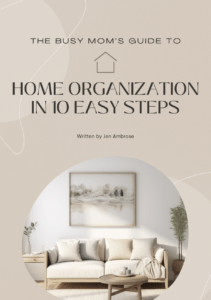
As parents, we all have moments when our patience wears thin, and we might raise our voices more than we’d like to. Yelling often leaves us feeling guilty and doesn’t always get the results we want. So, how can we communicate effectively with our children without resorting to shouting? Here are 13 strategies to help you stay calm and get your point across.
1. Mastering the Art of Deep Breathing: When tensions rise, our first reaction is often to respond immediately. However, taking a deep breath can make a world of difference. It allows you a moment to pause, collect your thoughts, and approach the situation with a clearer head. This simple act can prevent many a raised voice.
2. Understanding Your Triggers: All parents have certain triggers that make them more likely to yell. It might be constant noise, a specific kind of mess, or moments of disobedience. By recognizing these triggers, you can prepare yourself to react differently when they happen.
3. The Power of Clear Expectations: Children thrive on clear expectations. When they understand the rules and the consequences of breaking them, they’re more likely to follow them. Consistently calmly reminding them can reduce the need for yelling.
4. Embracing a Calm Tone: A calm and steady voice can be more effective than a loud one. It’s surprising how often kids mirror the tone of their parents. By keeping your voice even and controlled, you encourage them to listen and understand.
5. The Timeout for Parents: Sometimes, the best thing to do is to take a timeout yourself. If you feel your anger rising, it’s perfectly okay to step away for a few moments. This short break can help you return to the situation with a new perspective.
6. Active Listening: Listening to your children can change the dynamic of your communication. By giving them a chance to explain themselves, you might find that your reasons for yelling dissolve in the face of their logic or innocence.
7. Celebrate the Positive: Positive reinforcement is a powerful tool. By praising your child for good behavior, you encourage them to keep acting in that way. This positive feedback loop can reduce the instances where yelling feels like the only option.
8. Lead by Example: Children learn by watching us. If we manage to stay calm in stressful situations, they’re more likely to adopt the same behavior. Being a role model in this way can have a profound impact on the entire household.
9. Crafting a Stress-Free Zone: The overall environment in your home plays a significant role in everyone’s behavior. By minimizing stress and creating a peaceful space, you naturally reduce the occurrences of conflict and the resulting urge to yell.
10. The Importance of Routine: Establishing a consistent routine can minimize the chaos that often leads to frustration and yelling. When kids know what to expect, there’s less room for unexpected outbursts that can lead to raised voices.
11. Clear and Simple Communication: Instead of resorting to yelling, try expressing your needs in clear, simple language. Children respond well to direct communication. It reduces confusion and makes it easier for them to meet your expectations.
12. Seeking Support: You’re not alone in this parenting journey. Sometimes, speaking to other parents or a professional can provide new strategies or reassurance. Sharing experiences and advice can be incredibly beneficial.
13. The Power of Reflection and Apology: Finally, if you do end up yelling, take some time to reflect on why it happened. If appropriate, apologize to your child. This teaches them that everyone makes mistakes and that taking responsibility for our actions is important.
Changing habitual reactions like yelling takes time and patience. Be gentle with yourself as you try these new strategies to help you stop yelling at your kids. Remember, effective communication with your children is a learning process for both of you. By making small, consistent changes, you can create a more peaceful home where everyone feels heard and respected.





